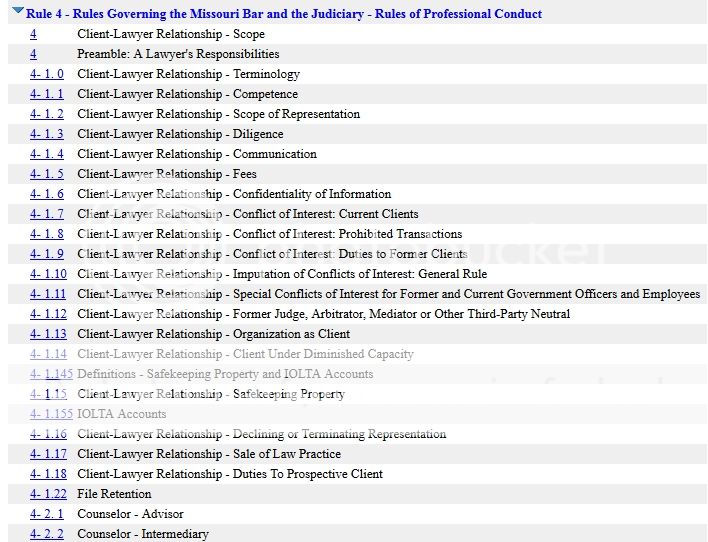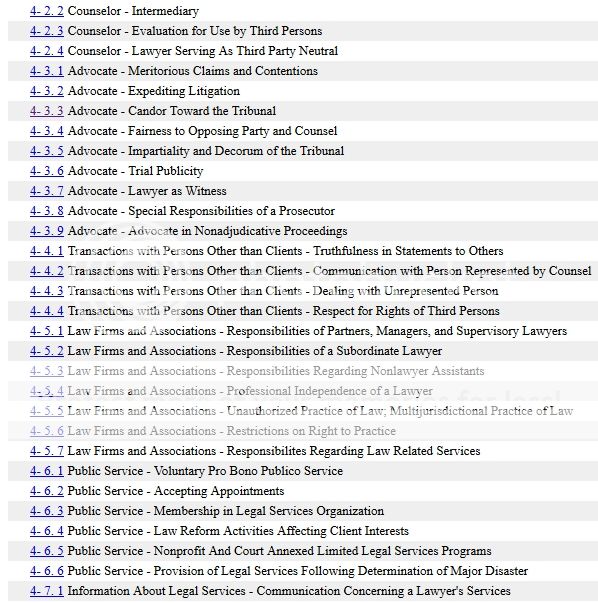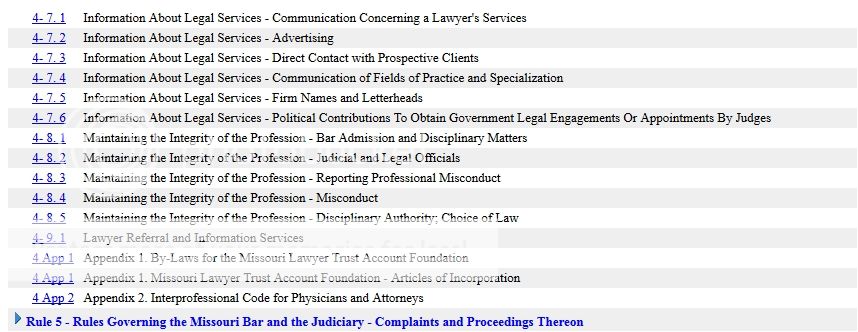- Joined
- Apr 29, 2012
- Messages
- 17,857
- Reaction score
- 8,336
- Location
- On an island. Not that one!
- Gender
- Undisclosed
- Political Leaning
- Socialist
The prosecutor stated he allowed everyone to testify...including (and this is the part a lot of folks want to ignore) those that were quite obviously lying providing statement s AGAINST officer Wilson. His reasoning was that during a grand jury he wanted ALL the testimony in play.
I'll post it again. The prosecutor is required, "SHALL" inform the jury when he knows a witness has lied during testimony
According to Missouri Rules of Professional Conduct, RULE 4-3.3, “A lawyer shall not knowingly offer evidence that the lawyer knows to be false.” The next sentence would seem to support disbarrment hearing for McColluch and other attorneys who knew witnesses were lying. 'If a lawyer, the lawyer’s client, or a witness called by the lawyer has offered material evidence and the lawyer comes to know of its falsity, the lawyer shall take reasonable remedial measures, including, if necessary, disclosure to the tribunal."
also from Rule 4-4.3
This is why McCulloch should be standing before a disbarrment hearing - he is REQUIRED to disclose his knowledge of false testimony - that doesn't mean to the media, a month after the legal proceedingsPreserving Integrity of Adjudicative Process
[12] Lawyers have a special obligation to protect a tribunal against criminal or fraudulent conduct that undermines the integrity of the adjudicative process, such as bribing, intimidating, or otherwise unlawfully communicating with a witness, juror, court official, or other participant in the proceeding, unlawfully destroying or concealing documents or other evidence, or failing to disclose information to the tribunal when required by law to do so. Thus, Rule 4-3.3(b) requires a lawyer to take reasonable remedial measures, including disclosure, if necessary, whenever the lawyer knows that a person, including the lawyer’s client, intends to engage, is engaging, or has engaged in criminal or fraudulent conduct related to the proceeding.



